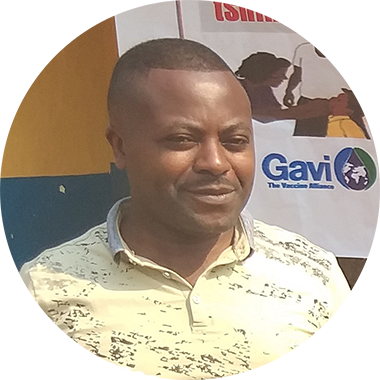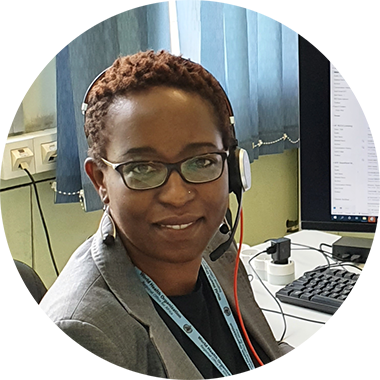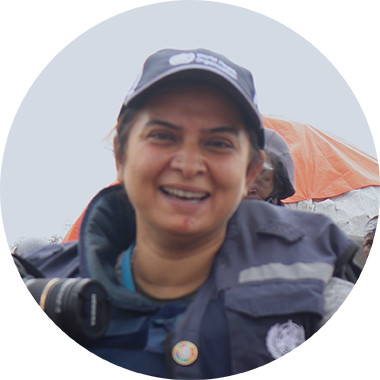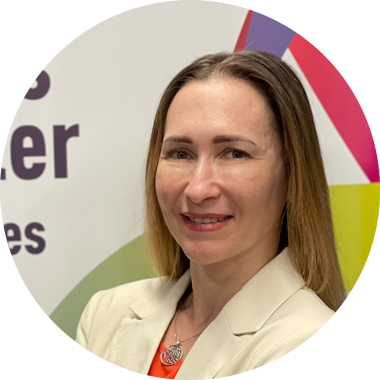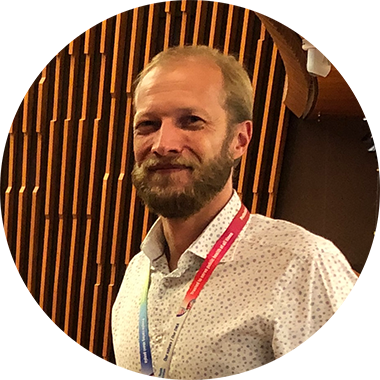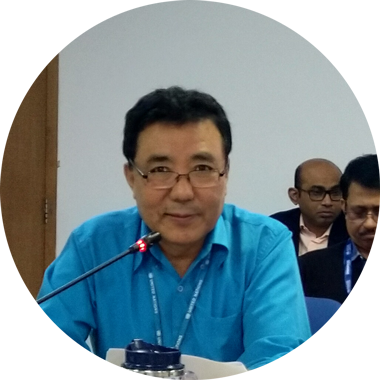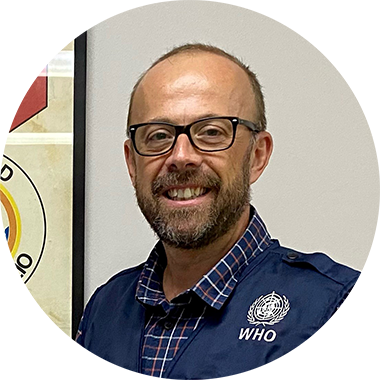
Rusul Alaa Mohammed Ameen Hamadi
Technical Officer, Polio Programme – Afghanistan Country Office
Rusul Hammadi is on a mission for WHO in the Afghanistan Country Office. She is proud to be a Technical Officer working for one of Afghanistan’s priority programmes. Her team collaborates with several other teams in Kabul and in WHO provincial offices on the elimination of polio. Her dream is to see Afghanistan declared free of the wild polio virus, like many other countries who have joined forces with WHO’s dedicated workforce to battle this crippling and often fatal disease.
Rusul grew up in Iraq, where the norm for her Baghdad family included the challenges of living in a country at war and facing sanctions. While she was at university studying English literature she became aware via the local news of how UN agencies were working to support Iraq’s stumbling infrastructure and basic needs without funds being redirected to the military. This showed Rusul a world where people and organizations cooperated to make things better and alleviate some of the suffering, and she started to think about where she could make a difference. Rusul’s mother was a teacher and led her to read Shakespeare, but her father, who worked in finance, motivated and inspired her ambitions to work in the health sector and be a part of building a better future. Rusul started working at the WHO Iraq Country Office as a receptionist and then had some special service agreement contracts in finance, where she saw the direct benefits of the relief programmes in hospitals and on the polio eradication campaigns. In 2007 she applied for her first staff contract, but due to the worsening security situation in Iraq her work was soon moved to Jordan, where she also served the Jordan-based Syrian crisis emergency unit. In 2014 with both finance and emergency support experience she began her long and passionate campaign against polio by joining WHO’s eradication support team. With 4 more years of programme experience, she applied for an international immunization programme support position in the Pakistan province of Punjab, and from there she was asked to move to the Afghanistan Country Office to continue the fight against polio.
Having grown up in a country in conflict, with a compassionate family and a father whom she admired and imitated through her own ambitions, it is not surprising that Rusul chose to use her considerable WHO emergency administrative experience and financial knowledge with this disease and in Afghanistan, which she readily associates with Iraq. Rusul recalls that her father’s diligent work in finance for the government and an NGO were both in health systems and programmes. “He taught me about so many diseases and programmes to combat them and I was proud of him and his work. Today, I am continuing his legacy.”
Rusul’s financial work is key to polio eradication in Afghanistan. The disease is still prevalent in the country, while WHO plays catch up between conflicts and crises. She is proud to be responsible for the direct payments made to the hundreds of frontline workers, whose roles are both fulfilling vaccination campaigns and disease surveillance. Rusul is gratified to be part of a humanitarian organization and inspired by these tireless workers, whom she refers to as the hidden disease soldiers and whose efforts halt the spread of the disease and provide WHO with valuable surveillance data to guide decision making. “These special local Afghan contractors and healthcare workers are frontline workers and are so important to the overall health of the country’s population,” she says. Her more than 20 years of experience working in the emergency’s programmes in several countries gives her a clear understanding of the importance to WHO’s mission, of these people and their work. “Without these courageous people, the disease quickly spreads and our information source, which is one of the components of our evidence-based policy and advice, dries up,” she says. “I must ensure that we can contract and pay these workers, even when the banking system is not functioning.” The teams work together to ensure that their programmes are budgeted for and funded on time so that they can be contracted, trained and supplied ahead of the campaign. Rusul helped to roll out software to monitor the campaign payments without delays. “We do our best to ensure that our systems are developed with accessibility in mind and we will continue to do this,” she adds.
“These special local Afghan contractors and healthcare workers are frontline workers ...and...without these courageous people, the disease quickly spreads ... “
The Afghanistan Country Office has a yearly calendar of special immunization campaigns which employ hundreds of front-line workers, who in turn support their families with the wages they receive. “During these challenging times, it isn’t just the reduction of disease that is important, it is also critical that we support the health care workers that serve our population.” The Afghan office works in teams to ensure that the campaign calendar is communicated, resourced, financed and adhered to, and Rusul has to ensure that everyone is paid in a transparent manner according to WHO financial rules and regulations.
Rusul has seen efforts to eradicate polio rewarded in her home country and continues to work towards this and other goals for WHO Afghanistan. “They are mostly women and I feel I want to support them and their amazing work. They are very professional, committed and efficient at vaccinating every child on their campaign trail. Their courageous dedication is what makes the difference to the outcome and it’s my honour to serve them as much as it is to serve WHO.”

